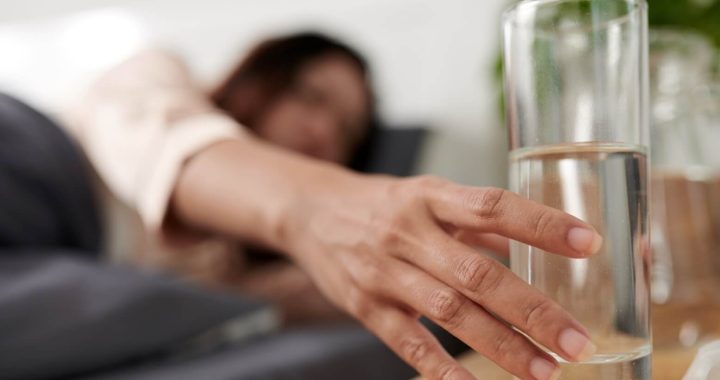There are many approaches you can take to help manage mental health issues like depression, anxiety, and PTSD.
Some common approaches include counseling, EMDR, removing stressors from your life, exercise, proper diet, getting enough rest, meditation, yoga, massage therapy, and Access Consciousness the bars technique.
But there is one simple remedy that’s been right in front of you all along that you may not have paid attention to: helping your depression and/or anxiety by staying adequately hydrated throughout the day.
Every system in the body counts on water to function, and the brain is no exception. Eighty five percent of brain tissue is water. Research has linked dehydration to depression and anxiety, because mental health is driven primarily by your brain’s activity.
Dehydration causes brain functioning to slow down and not function properly. It is important to think of water as a nutrient your brain needs.
How dehydration contributes to depression
There are many functions happening between the brain and body. And though it would be overly simplistic to say that dehydration is a direct cause for all types of depression, dehydraton and depression are causally connected in many ways. In fact, one resulting symptom of chronic dehydration actually turns out to be depression.
Dehydration causes depression in at least three ways:
Dehydration saps your energy
Dehydration blocks energy production in your brain. Many of your brain’s functions requiring this type of energy become inefficient and can even shut down. The resulting mood disorders that result from this type of dysfunction can be categorized with depression.
Social stresses such as anxiety, fear, insecurity, ongoing emotional problems, etc., including depression can be tied to not consuming enough water.
Dehydration blocks your brain’s serotonin production.
Depression is frequently related to low serotonin levels, a critical neurotransmitter that heavily affects your mood. Serotonin is created from the amino acid tryptophan, but sufficient water is needed. Tryptophan is very important in staying asleep through the night and studies have shown the connection between depression and sleeping problems.
Dehydration can negatively impact other amino acids, resulting in feelings of dejection, inadequacy, anxiety, and irritability.
Dehydration increases stress in your body.
Stress is one of the most prominent contributing factors to depression, along with a sense of powerlessness and inability to cope with stressors.
Dehydration is the number one cause of stress in your body. In fact, it’s a self-perpetuating cycle: dehydration can cause stress, and stress can cause dehydration.
When you’re stressed, your adrenal glands produce extra cortisol, the stress hormone, and under chronic stress, your adrenal glands can become exhausted, resulting in lower electrolyte levels.
Dehydration and anxiety
Dehydration puts you at risk for increased anxiety symptoms now and creates the possibility of developing higher anxiety levels in the future. Therefore, you want to ensure you are properly hydrated daily, especially if you are naturally anxiety-prone.
Water has a natural calming effect and can create feelings of relaxation.
Dehydration and panic attacks
Panic attacks are a common result of high anxiety caused from dehydration. When dehydrated, you expose yourself to many of the symptoms of panic attack such as:
- Increased heart rate
- Headaches
- Muscles fatigue and weakness
- Feeling faint/lightheaded
Signals of Dehydration
Increased hunger. Hunger and thirst signals come from the same part of the brain, the hypothalamus, so it is not surprising that they might be confused. Hunger, when you have eaten enough, probably means you need to drink some water, not always to eat more.
Dryness. Dehydration is reflected in common signs of dryness including chapped lips, dry, itchy skin, dry mouth etc.
Headaches. Lack of water reduces the oxygen supply to the brain, resulting in headache.
Fatigue and weak/cramped muscles. Muscle weakness, spasms, cramping, etc. are common signs of dehydration.
Bad breath. It usually means you need to increase your water because dry mouth doesn’t produce enough saliva to help your mouth fight off odorous bacteria. Detoxification of your body can also result in bad breath. The body needs water to detoxify.
Your ideal daily water intake depends on your gender, stress levels, weight, climate, exercise levels, and whether or not you are sick. A rule of thumb is 11.5 cups (92 oz.) of water per day for women and 15.5 cups (124 oz.) for men. Avoid cigarettes, alcohol, soda/ caffeine, and energy drinks as these dehydrate you as well.
Learn more ways to help with depression and anxiety in my class Empath’s Guide to Freedom from Anxiety, Depression, and Overwhelm. Click here to learn more and join!

